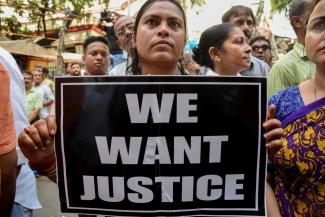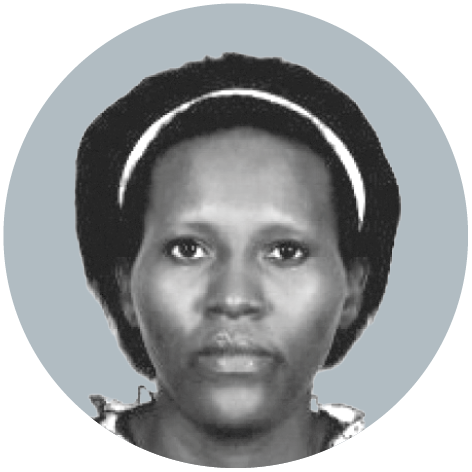Empowerment
How India’s young women reclaim safety and confidence
 picture alliance/Middle East Image /Debajyoti Chakraborty
picture alliance/Middle East Image /Debajyoti Chakraborty
When Shruti, a frail 17-year-old schoolgirl, arrived at a three-day self-defense training in Lonavalaa, a town in the Indian state Maharashtra, she was burdened by self-doubt. Her family had long dismissed her as weak, and she believed it too. Quiet on the first day, she slowly began to engage. By the final session, she had practiced all the self-defence moves confidently and had also proclaimed: “What other girls sitting here can do, I can also do.”
Only days earlier, she had fainted at school. Now she stood tall before her peers. In many ways, she embodies the mission of the popular Indian movement and civil-society organisation Red Brigade Lucknow: transforming fear into faith and silence into strength. Based in Lucknow, India, the organisation empowers women through self-defence education.
Red Brigade was founded in 2011 by Usha Vishwakarma, after she survived an attempted rape. What began as an act of defiance and healing – in the beginning, 15 young women performed street plays on abuse and harassment – evolved into a powerful movement for women’s security and dignity in India.
The group’s work took on new urgency after the 2012 Delhi gang rape case, as women across India sought ways to protect and empower themselves. That’s when Red Brigade expanded its mission from protests to structured training programmes, creating space for physical and psychological recovery.
In India, gender-based violence remains widespread and women are often silenced by social and cultural norms. According to data collected between 2019 and 2021, almost one in three women has experienced physical or sexual violence, and many girls still grow up being told to stay quiet or stay home. In such a reality, teaching self-defence is not only about personal protection but also about reclaiming confidence and dignity as women.
Learning how to fight
During Red Brigade’s sessions, it became clear that conventional self-defence methods often failed real survivors. The group therefore developed Nishastr Kala, a technique focused on survival within seconds of an attack. Co-created with women who had experienced violence and martial arts experts from India, France and Australia, this approach prioritises realism over ritual. Since then, more than 250,000 girls in schools and villages have been trained, learning not only how to fight, but how to believe in their own resilience.
Over time, Vishwakarma realised that safety alone could not dismantle entrenched gender hierarchies. “Protection is the first step,” she says, “but if women do not sit where decisions are made, nothing really changes.”
This conviction led to the creation of Veerangana Vahini – an “army of brave women” focused on cultivating young female leaders. Operating in 20 districts across Uttar Pradesh, one of India’s most challenging states for gender equality, the organisation engages women aged 18 to 25 in discussions about safety, education, independence and governance. These dialogues, Vishwakarma believes, are the seedbed of transformation: “Only when discussion deepens do thoughts begin to grow.”
The impact is already visible. At a leadership summit earlier this year, more than a thousand young women from across the state declared, “I am ready to lead.” Some, from farming families, Dalit communities and other marginalised castes, now aspire to become Pradhan, the village head, or Members of the Legislative Assembly, both roles long dominated by men.
The movement is also challenging the grip of the Pradhan Pati, the “unelected husbands” who often hold power behind the scenes and exercise unofficial authority, thereby undermining the leadership role of their wives who have been elected as village chiefs. In one village, a young Dalit girl’s speech inspired the local female Pradhan to demand accountability from her husband. Soon after, he stormed into the organisers’ office, asking furiously, “What are you teaching my wife?”
What Veerangana Vahini is teaching, it seems, is simple yet radical: when women hold the seat of power, their decisions must lead.
Roli Mahajan is a journalist based in Lucknow, India.
roli.mahajan@gmail.com




